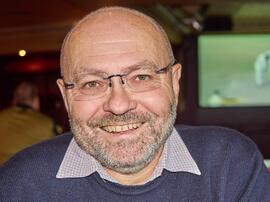Interview with Harry Distin Curtis 1972
- ZA ZAR STDS 202000800
- Item
- 2011
Interview with Harry Distin Curtis, Matric 1972 (Last year of Boarders)
Harry was born in 1954 in the town of Ndola in the former British colony of Northern
Rhodesia. Concerned about the quality of education in Zambia his parents sent him in 1967,
grade 7 to St David’s. Having bought uniforms etc he and his father had a brief look at the
school over the weekend. On the sunday afternoon they arrived at the school and met the
headmaster, Brother Anthony after which he went to the dormitory and locker room where he
would spend the next 6 years boarding. This would be his second home and the Marist
Brothers his foster parents, his first evening boarding was 23 January 1967.
Harry did not enjoy boarding from day one but had the comfort of knowing he would be
seeing his father the coming weekend. He was however a keen cricketer and athlete in his
early years and really only started playing rugby from grade 11. In his matric year he played
for the 1st rugby and cricket teams, and shared the athletic Victor Laudorum having excelled
in shot-put, discus and high jump. He was awarded his honours blazer in 1972 on receiving
his prefect, merit and athletic scrolls. Being appointed prefect and then the awarding of an
honours blazer were his most memorable achievements.
He only had grade 11 and 12 in which to learn Afrikaans for matric, he wasn’t required to
have it as a subject before.
Although the camaraderie and friendships that were built as a boarder were valuable, he
would have preferred to have been a day boy in Zambia enjoying life with his parents. He
was only able to be with them for a total of 2 ½ months a year during the mid year and year
end holidays. His father was only able to watch one of the games of sport he played during
his entire 6 years, a cricket match in grade 11. He had very fond memories of his holidays.
Harry felt that boarding school was harsh, not easy to adjust to coming from a loving
environment and experiencing the freedom of farm life. There was no longer any love,
privacy and freedom to dream. Bullying was rife and the Marist Brothers were certainly not
the caring people you would expect of those having received the religious habit.
In the St David’s Review Album, 1967 he found a photograph of the school choir. There he
was, the only picture relating to his past singing ability. The school also had a brass band
that performed at numerous functions. Sadly the choir and band activities came to an end.
As boarders the boys had no cultural activities, sport was the only release for their energy.
Harry felt that his musical talents were repressed at St David’s. The education was good
although, in those days, learning was mainly by rote. 1972 was a bad year academically but
conversely a very good sporting year and many records made then, he believes are still
unbroken.
Some memories:
In standard 5 he had Br. Patrick who was wonderful. Mrs Kempster was a dragon and lethal
with the cane – Kenisovitch.
The boarding was closed in 1972 as the Brothers could not control the boys anymore.
He loved matron Buckley-Jones who was a surrogate mother to him.
Br Michael ran the horse riding.
He remembers the dorm and Brother but not his name but he had a beautiful voice and was
only there for a year (not after 1968).
The last musical event was in 1968.
He had a good relationship with Br Aidan who loved playing table tennis.
Br Timothy he liked, he took them once to a soccer match as a special outing and they
regularly went to Wanderers.
Br Mario (Bosco) was a star, even though he gave him 6 of the best, caning in his last year.
He loathed Br Andrew – Dracula who nearly got him expelled after an incident with Br
Bernard.
Peter Stringer, cricket coach, not very good, rather lazy but a nice guy.
He enjoyed Br Anthony and recalled an incident when a group of boys went to the local
restaurant , Beefeaters now Giovanni’s. One of the boys had two gorgeous sisters
(Madeleine became Wickens) who worked there. They got their beers and burgers and
afterwards started the trek back to school. Jamie Curtis lay in the road trying to hitch a lift
when round the corner comes a white VW Beetle – Br Anthony’s car! Unaware that it was Br
Anthony one of the boys went up to the window, cigarette in hand. Needless to say
cigarettes were extinguished rapidly! Br Anthony got them all in his car, took them back and
all he said was he didn’t mind them having a good time but “Why in St David’s tracksuits?”.
The favourite smoking place was by the scoreboard.He enjoyed the cricket tours especially
to St Stithians and was there when the Oval was opened. He alsoenjoyed the swimming
galas.
Boys he remembers:
John Jacobs, Charles Rolandson, Hugh Flynn – has been in touch with them.
Terence van Heerden (best friend) vice head boy.
Terry Lavery (Springbok) in his first year athletics.
Mc Gregor swimmer also a Springbok.
Head Boy was Alf Ghodes.
Nigel Mayer rewrote matric and organised a couple of ladies for his matric dance which was
held in the dining room.
Iglier, Spalding, Simon and Hamish Gilbert (twins)
Strong in CT – Lavery, Agianos, McGurk, Patrick’s brother is a priest.
JLE October 2010
Egenrieder, Julie

